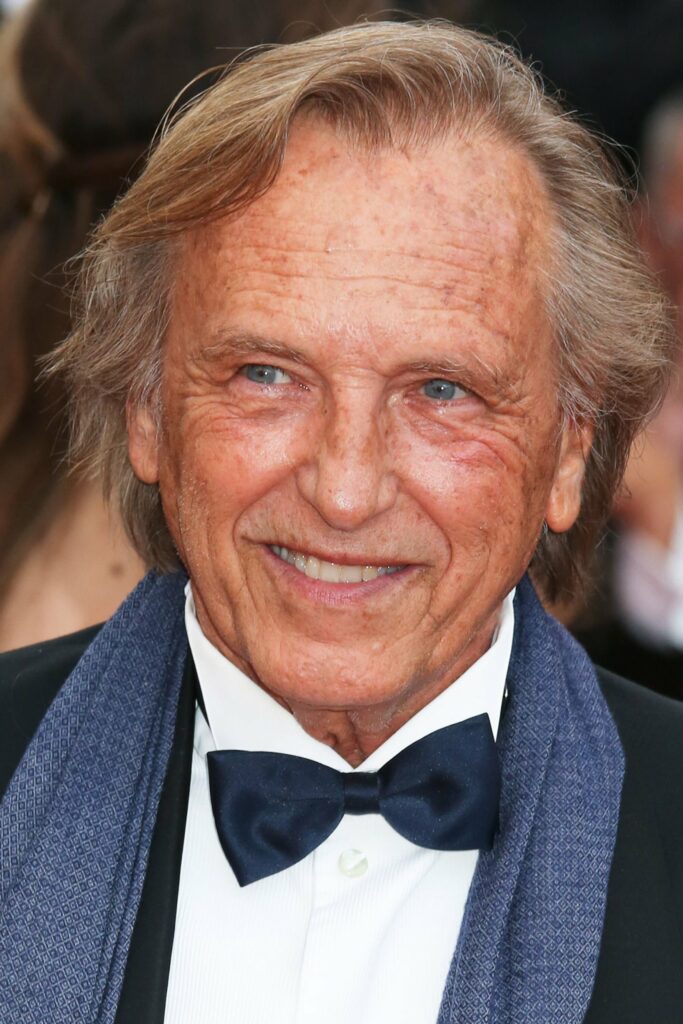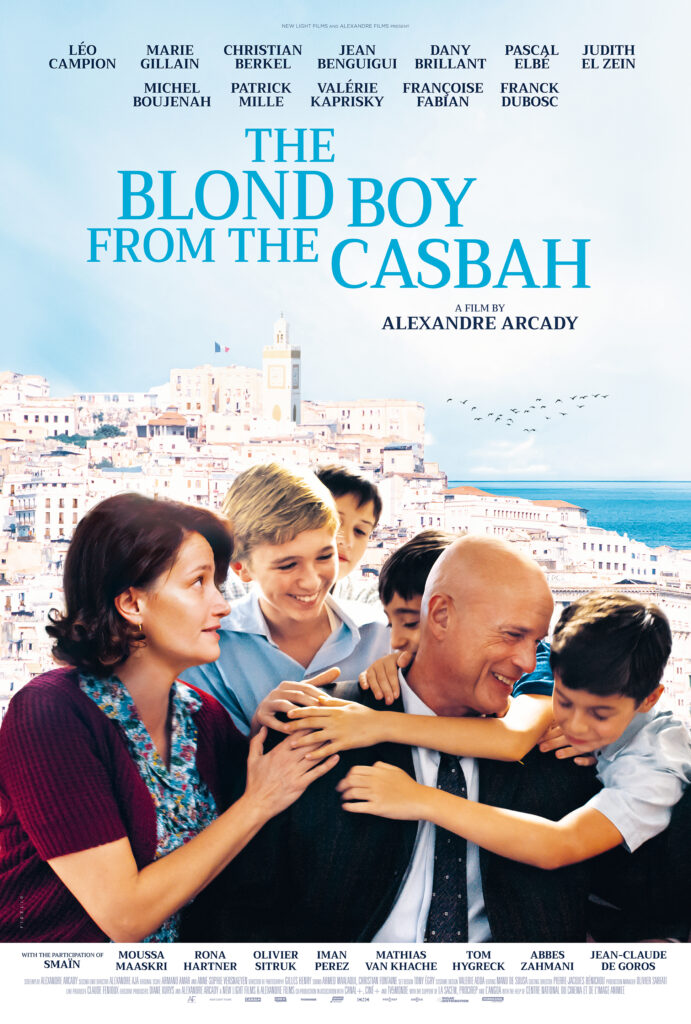FEATURE FILM, ARTICLE
Echoes of the Casbah: A Journey Through Childhood and Colonial Memory
DIRECTOR STATEMENT BY ALEXANDRE ARCADY
“Ever since the departure of the liner that brought us from Algiers – a scene I evoked in my first film, LE COUP DE SIROCCO – I have never forgotten my country of origin. In 2004, I wrote an autobiography, THE BLOND BOY FROM THE CASBAH, but the idea of doing it as a film no doubt scared me at the time. Looking at your childhood to explain the man you’ve become is a dangerous exercise, vertiginous and surely very positive. When I finally began to work on the screenplay, I imagined an alter ego: Antoine, 13 years old in 1960, a boy from the casbah, who grew up at school, with friends, family and neighbors and who discovered a fascination for the cinema while living through the final moments of pre-independence Algeria.
When making this film, I believe I wanted to close the circle, as they say, and offer a more serene view of those days for all who have a connection with Algeria, and for those who have never lived there.
Above and beyond the colonial war that ripped apart entire populations, I want to talk about what united them. The rue du Lézard where I come from, and whose story I tell is a microcosm of Algeria back then, with its Kabyle, Mozabite, Moslem, Catholic and Jewish communities. I was part of the Sephardic community, present in Algeria for three thousand years. Their coexistence with the other populations was alternately fertile or tumultuous. The cultures were enriched by common practices, shared feasts and rites… We all lived together until decolonization destroyed that equilibrium.
I would like this film to transmit that common memory in the same way as the adult Antoine hands on the memory of his family to his son.
Like all those who survive a vanished era, I dream of bringing those days back to life on screen, to recreate a way of life that many today fail to understand.
Using my own biography, examining my own childhood, I felt that what I wanted to come through in this film would prove interesting to us today in France, where our diverse communities are also struggling to cohabit peacefully today.”
BIOGRAPHY

Born in Algeria on March 17, 1947, Arcady Egry, also known as Alexandre Arcady, is a film director. In the late 60s, he began an acting career by appearing in a TV series entitled LA CRAVACHE D’OR. Then, he began directing short films and TV movies. In 1977, with his partner, director Diane Kurys, he founded a production company with which he produced the hit PEPPERMINT SODA, as well as COCKTAIL MOLOTOV (1980). In 1979, he signed his first feature film, LE COUP DE SIROCCO. Based on his own personal story, the film, which recounts the arrival of the Pieds -noirs in France, was an unhoped-for success, revealing the talent of Patrick Bruel.
After this first film, Alexandre Arcady made exile his favorite subject, directing LE GRAND CARNAVAL (1983) and LÀ-BAS, MON PAYS (2000). The director also dabbled in other genres, such as thrillers: K and BREAK OF DAWN, and dramas: THE BIG PARDON, LE GRAND PARDON 2 and DIS-MOI OUI. He also tackled comedy with HOLD-UP (1985) and TU PEUX GARDER UN SECRET?.
He then returned to dramas and crime genre with COMME LES CINQ DOIGTS DE LA MAIN (2010), WHAT THE DAY OWES THE NIGHT (2012) and 24 DAYS (2014).
In 2023, he returns with the film THE BLOND BOY FROM THE CASBAH retracing his entire history in Algiers.
Follows the childhood of the filmmaker Antoine Lisner. He travels to Algiers to present a feature-length film while being accompanied by his son, who was the same age as him when he left Algeria in 1962.
INTERVIEW CONVERSATION WITH:
ALEXANDRE ARCADY (THE DIRECTOR),
MARIE GILLAIN (Dinah),
PASCAL ELBÉ (Jacob),
PATRICK MILLE (Alexandre Arcady),
LÉO CAMPION (Antoine as a kid)
